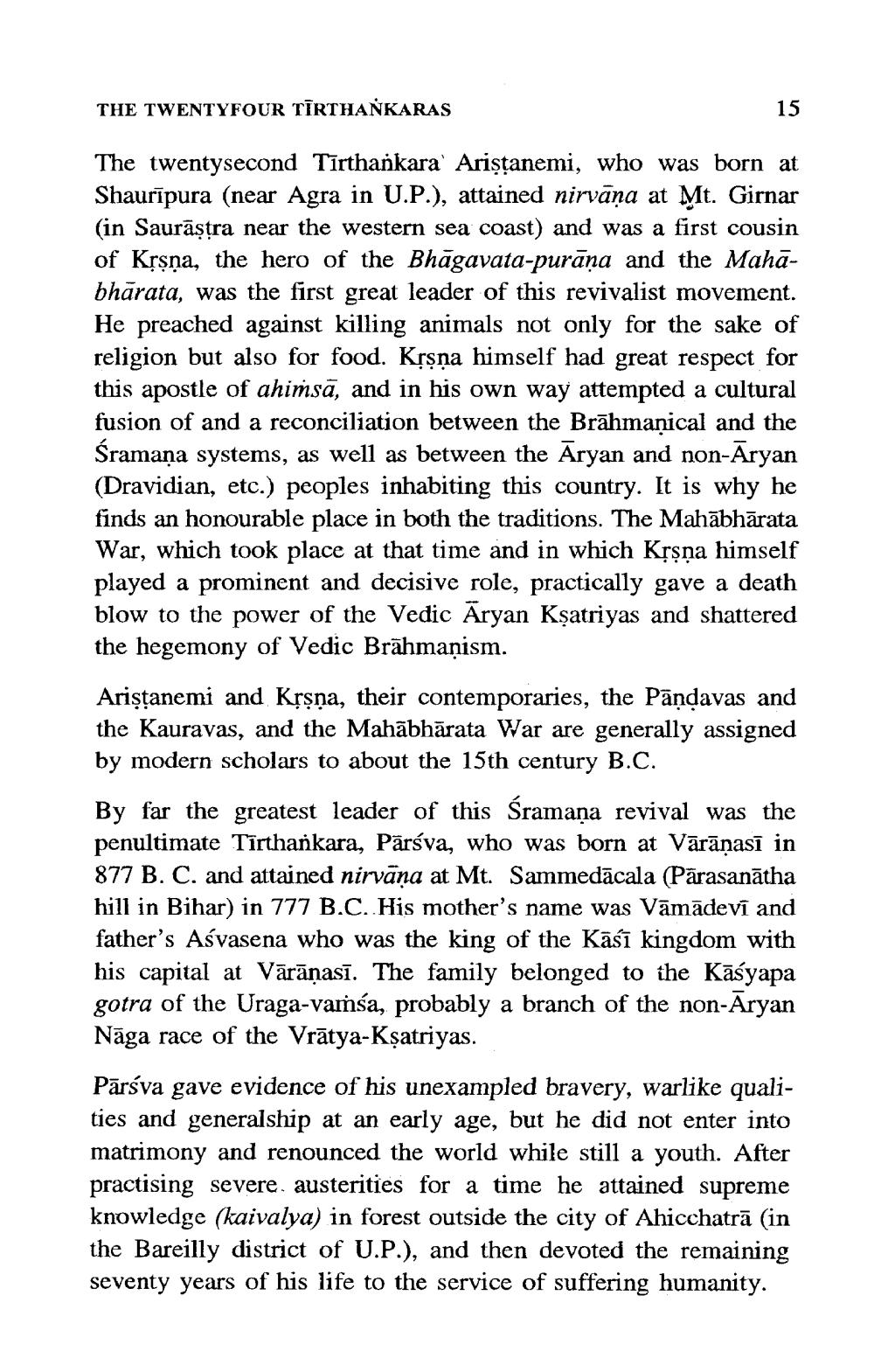________________
THE TWENTYFOUR TĪRTHANKARAS
15
The twentysecond Tīrthankara Aristanemi, who was born at Shaurīpura (near Agra in U.P.), attained nirvāņa at Mt. Girnar
in Saurāșțra near the western sea coast) and was a first cousin of Krsna, the hero of the Bhāgavata-purāna and the Mahābhārata, was the first great leader of this revivalist movement. He preached against killing animals not only for the sake of religion but also for food. Krsna himself had great respect for this apostle of ahimsā, and in his own way attempted a cultural fusion of and a reconciliation between the Brāhmanical and the Sramana systems, as well as between the Aryan and non-Aryan (Dravidian, etc.) peoples inhabiting this country. It is why he finds an honourable place in both the traditions. The Mahābhārata War, which took place at that time and in which Krsna himself played a prominent and decisive role, practically gave a death blow to the power of the Vedic Aryan Kşatriyas and shattered the hegemony of Vedic Brāhmanism.
Ariștanemi and Krşna, their contemporaries, the Pāndavas and the Kauravas, and the Mahābhārata War are generally assigned by modern scholars to about the 15th century B.C.
By far the greatest leader of this Śramaņa revival was the penultimate Tīrthankara, Pārsva, who was born at Vārāṇasī in 877 B. C. and attained nirvana at Mt. Sammedācala (Pārasanātha hill in Bihar) in 777 B.C. His mother's name was Vāmādevi and father's Aśvasena who was the king of the Kāšī kingdom with his capital at Vārāṇasī. The family belonged to the Kāśyapa gotra of the Uraga-vamsa, probably a branch of the non-Aryan Nāga race of the Vrātya-Kșatriyas.
Pārsva gave evidence of his unexampled bravery, warlike qualities and generalship at an early age, but he did not enter into matrimony and renounced the world while still a youth. After practising severe. austerities for a time he attained supreme knowledge (kaivalya) in forest outside the city of Ahicchatrā (in the Bareilly district of U.P.), and then devoted the remaining seventy years of his life to the service of suffering humanity.




